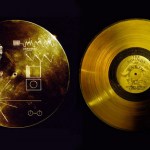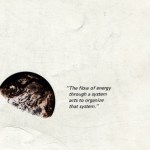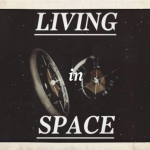In 1977, NASA sent a pair of unmanned probes named Voyager 1 and Voyager 2 into space. Among the infrared spectrometers and radio receivers included on each probe were identical copies of the same non-scientific object: the Voyager Golden Record.
Sheathed in a protective aluminum jacket, the Record is a 12-inch gold-plated copper disk containing sounds and images chosen to portray the diversity of life on Earth: bird calls, whale songs, the sounds of surf, wind, and thunder, music from human cultures, and some 55 greetings in a range of languages, alive and dead. Like lonely time capsules,…
Frank White
A couple of months ago, I wrote a piece here on Universe exploring the ideas of the futurist Gerard K. O'Neill, who designed far-out but ultimately quite pragmatic environments for human habitation in space in the mid-1970s. In that article, I touched briefly on the notion of the "Overview Effect," a phrase coined by the writer Frank White to describe the profound insight -- characterized by a sudden awareness of life's interconnectedness and the frailty of our planet -- experienced by astronauts gazing down at the Earth from space.
Frank White is the author of The Overview Effect: Space…
In the mid-1970s, the U.S. State Department prohibited the internal use of the term "space colony," due to the global bad reputation of colonialism. Instead, the government opted for "space settlement." Of course, as Stewart Brand pointed out at the time, the last thing you do in space is settle. Quite the opposite! Making the decision to explore space -- and live there -- is just about the most unsettled act a human can commit.
There have always been two camps on this issue. First, the unsettled, like Brand: the science-fiction aficionados, capitalists, rocketry geeks, macrocosmic thinkers,…


